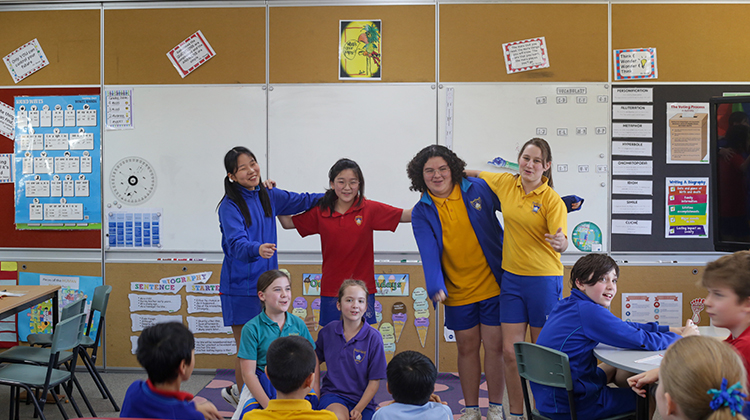Kids learn how to start money making businesses

Not much about the future is certain but what is certain is that the machines are coming for many jobs.
That means that human qualities like creativity, empathy and invention are going to be at a premium and all of them can be applied in entrepreneurship.
Identifying business opportunities and developing them is a craft that can be learned and practiced, and the earlier you get started the better.
Taj Pabari, Chief Executive Officer of Australian School of Entrepreneurship knows that there is more than one way to skin a cat and despite being an indifferent student his entrepreneurial spirit has given him an interesting career and life.
That spirit has found voice in the ASE and he wants to pass it on to a new generation of business people.
“ASE really started because we wanted to bring small business and entrepreneurial education to young Aussies. I was a disengaged young person growing up – I did pretty poorly in the classroom and really just wanted to start my career straight away.
“We originally co-designed the program with young entrepreneurs, students, industry and teachers. We wanted to make sure it had the right balance between really practical self-employment skills and skills development should the students enter the workforce later on. We've now adapted the program based on the cohort but the youth co-design process is always a stock standard default,” Pabari says.
ASE delivers face-to-face and online self-employment programs for young Aussies aged 5 to 24. In the last 16 months, they've delivered the program to more than 91,000 young people who are starting real micro-businesses that are making real revenue and income.
“We have lots of amazing young people that have started some totally incredible business ideas. From innovative applications to educate the next generation about sustainability to community car washes, we've had a bit of everything.
“We literally teach young people how to start their very own micro-business. We don't want the kids to simply come up with an idea and then never work on it after a workshop so we like to focus on super practical, micro-businesses. Things like car washes, gardening, baby-sitting, handmade goods are really the sorts of businesses we are looking for. They're local and practical enough for our kids to start and make an income from straight away,” Pabari says.
All of ASE’s programs link with the Australian Curriculum across multiple subject areas. Usually, the school will host the ASE Program Facilitators who will deliver a program from a simple one incursion workshop to a full 20-week self-employment program. They've also developed a curriculum embedded program for teachers to integrate the program in their own classrooms.
“We have a pretty epic team of people that are all passionate about young people and self-employment. From past teachers to young entrepreneurs to professional facilitators, we've got it all.”
The program is delivered in three ways – workshops, online education and partnerships. The online education is the newest delivery feature and has allowed ASE to reach tens of thousands of young people in a short time.
“We can connect the young people together and allow them to work together to create some really amazing local change,” Pabari says.
A quick video for context - https://youtu.be/hNBtNO1tRBs
More about the ASE team here - https://ase.edu.au/people
More about their alumni here - https://ase.edu.au/alumni
ASE was awarded $10,000 in funding as a runner-up of the St.George’s Kick Start 2020 competition in partnership with TEDxSydney to help get its business idea off the ground during the pandemic.